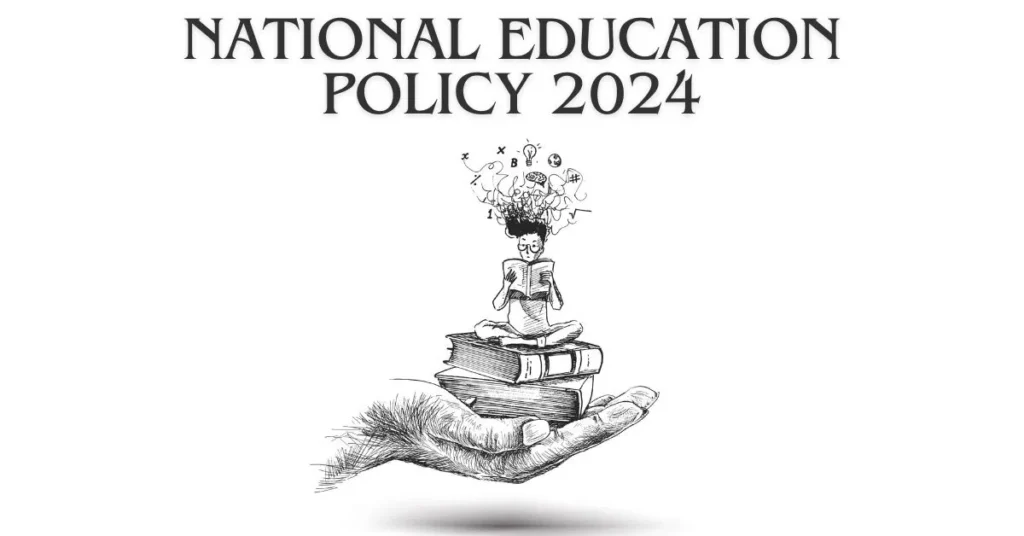Education is the backbone of any society. With the rapid advancements in technology and the evolving needs of the global economy, it’s crucial to have a forward-thinking education system. Enter the National Education Policy 2024. This policy promises to revolutionize the way we educate our youth, ensuring they are prepared for the challenges and opportunities of the future.
Why a New Education Policy?
You might wonder why we need a new policy at all. The answer is simple: the world is changing, and so must our approach to education. The National Education Policy 2024 aims to address the gaps in our current system, making education more inclusive, flexible, and aligned with the needs of the 21st century.
Our previous education policies have served us well, but they were designed for a different time. Today, we’re facing challenges like climate change, digital transformation, and a globalized economy. To thrive in this environment, students need skills like critical thinking, creativity, and digital literacy. The National Education Policy 2024 focuses on these areas, preparing students for the future.
Key Highlights of the National Education Policy 2024:
So, what exactly does the National Education Policy 2024 entail? Let’s dive into some of its key features.
Emphasis on Holistic Development:
The policy emphasizes the holistic development of students. This means nurturing not just their academic abilities but also their physical, emotional, and social skills. Schools will be encouraged to offer a wide range of extracurricular activities, from sports to arts, ensuring that students develop well-rounded personalities.
Moreover, the policy recognizes the importance of mental health. Schools will now have trained counselors to support students’ mental well-being, creating a more supportive and nurturing environment.
Integration of Technology:
In today’s digital age, technology is a crucial part of education. The National Education Policy 2024 places a strong emphasis on integrating technology into the classroom. This includes using digital tools for teaching and learning, as well as teaching students how to use technology responsibly.
Teachers will receive training on how to effectively incorporate technology into their lessons. Additionally, students will have access to digital resources, making learning more engaging and interactive.
Making Education Accessible to All:
One of the most commendable aspects of the National Education Policy 2024 is its focus on inclusivity. The policy aims to make education accessible to all, regardless of socio-economic background, gender, or location.
Bridging the Digital Divide:
To ensure that every student has access to digital learning tools, the policy includes measures to bridge the digital divide. This includes providing internet access and digital devices to students in remote and underserved areas. By doing so, the policy ensures that no student is left behind in the digital age.
Promoting Gender Equality:
Gender equality is another critical focus of the National Education Policy 2024. The policy encourages schools to create a safe and inclusive environment for all students, regardless of gender. This includes implementing programs to reduce gender-based violence and discrimination, as well as promoting gender-sensitive teaching practices.
Rethinking Curriculum and Assessment:
The National Education Policy 2024 brings significant changes to the curriculum and assessment methods, aiming to make learning more meaningful and less stressful for students.
Competency-Based Learning:
The new policy shifts the focus from rote learning to competency-based learning. This means that instead of memorizing facts, students will develop a deeper understanding of subjects and learn how to apply their knowledge in real-world situations.
This approach also includes project-based learning, where students work on projects that require critical thinking, collaboration, and problem-solving. This not only makes learning more engaging but also helps students develop essential life skills.
Continuous and Comprehensive Evaluation:
Gone are the days of high-stakes exams that determine a student’s future. The National Education Policy 2024 introduces continuous and comprehensive evaluation, which assesses students’ progress throughout the year. This includes a mix of formative and summative assessments, giving a more accurate picture of a student’s abilities.
Teachers will also provide regular feedback to students, helping them identify their strengths and areas for improvement. This approach reduces the stress associated with exams and encourages a more positive learning experience.
Empowering Teachers:
Teachers play a crucial role in the success of any education policy. Recognizing this, the National Education Policy 2024 includes several measures to empower and support teachers.
Professional Development:
Continuous professional development is a key component of the new policy. Teachers will have access to regular training programs, workshops, and seminars to keep them updated with the latest teaching methods and technologies. This not only enhances their skills but also boosts their confidence and motivation.
Autonomy and Flexibility:
The policy also gives teachers more autonomy and flexibility in their teaching methods. They can tailor their lessons to the needs and interests of their students, making learning more personalized and effective. By trusting teachers’ expertise and judgment, the policy aims to create a more dynamic and responsive education system.
Involving the Community:
Education is not just the responsibility of schools and teachers. The National Education Policy 2024 emphasizes the role of the community in supporting and enhancing the education system.
Parental Involvement:
Parents play a vital role in their children’s education. The new policy encourages schools to actively involve parents in the education process. This includes regular communication between teachers and parents, as well as involving parents in school activities and decision-making processes.
Collaboration with Local Organizations:
Schools will also collaborate with local organizations, businesses, and NGOs to provide students with a broader range of learning experiences. This includes internships, community service projects, and extracurricular activities that connect students with the real world.
Looking Ahead: The Future of Education
The National Education Policy 2024 is a bold and ambitious initiative that aims to transform our education system. By focusing on holistic development, inclusivity, and the integration of technology, the policy prepares students for the challenges of the future.
But the success of this policy depends on its effective implementation. This requires the collaboration and commitment of all stakeholders, including educators, parents, policymakers, and the community.
As we move forward, it’s essential to keep the dialogue open and continuously assess and refine the policy based on feedback and outcomes. After all, education is a dynamic field that must evolve with the changing needs of society.
Conclusion: A Bright Future for Education
The National Education Policy 2024 is a significant step towards creating a more inclusive, flexible, and forward-thinking education system. By focusing on holistic development, integrating technology, and making education accessible to all, the policy aims to prepare students for a successful future.
As we embrace this new policy, let’s work together to ensure its successful implementation and create a brighter future for our children. The journey may be challenging, but the rewards are well worth the effort. With the right support and collaboration, we can truly transform education and pave the way for a better tomorrow.







